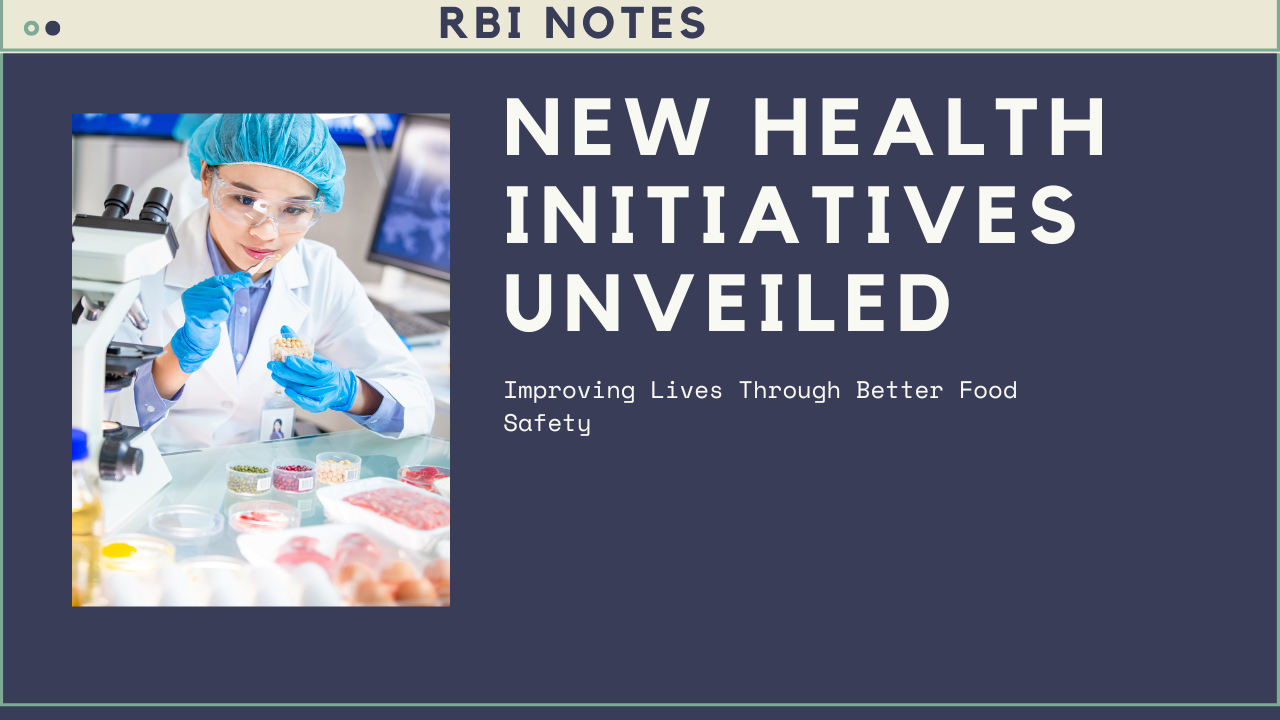The Union Ministry of Health and Family Welfare has recently launched several key initiatives aimed at enhancing healthcare quality and food safety across India. These initiatives, which include the National Quality Assurance Standards (NQAS) assessment, the Dashboard for Integrated Public Health Standards (IPHS), and the Spot Food Licence Initiative, are integral to the government’s vision of providing “Healthcare for All” and promoting wellness.
Contents
National Quality Assurance Standards (NQAS) Assessment:
- Purpose: The NQAS assessment has been introduced for Ayushman Arogya Mandirs (AAM) and Integrated Public Health Laboratories (IPHL) to ensure that these facilities meet the standards set under the Integrated Public Health Standards (IPHS).
- Functionality: IPHS is a digital platform that enables real-time monitoring of public health facilities. It provides a comprehensive overview of the assessment and compliance status, ensuring that public health services maintain high standards of care and efficiency.
Spot Food Licence Initiative:
- Objective: This initiative is designed to streamline the process of issuing food licenses and registrations. The Spot Food Licence Initiative operates through the Food Safety and Compliance System (FoSCoS), a pan-India IT platform that addresses all food safety regulatory needs.
- Key Features:
- Instant issuance of licenses without the need for intervention by a licensing authority for select categories such as wholesalers, distributors, retailers, transporters, and importers.
- It supplements the existing procedures under the Food Safety and Standards (Licensing and Registration of Food Businesses) Regulation, 2011.
- This scheme, however, does not apply to high-risk food categories such as milk, meat, and fish.
Ayushman Arogya Mandirs (AAM):
- Overview: AAMs have been established to provide comprehensive and accessible healthcare services to all citizens. These centers are led by Community Health Officers (CHOs), who manage initial care, triage, and refer patients to appropriate facilities if further treatment is needed.
- Impact: This approach reduces the burden on secondary and tertiary care facilities by offering primary care services within the community. Early identification and management of health issues through AAMs help in preventing disease progression, thereby reducing the need for advanced care.
These initiatives underscore the government’s commitment to enhancing healthcare accessibility and food safety across India, ensuring that services are efficient, transparent, and accessible to all citizens.


